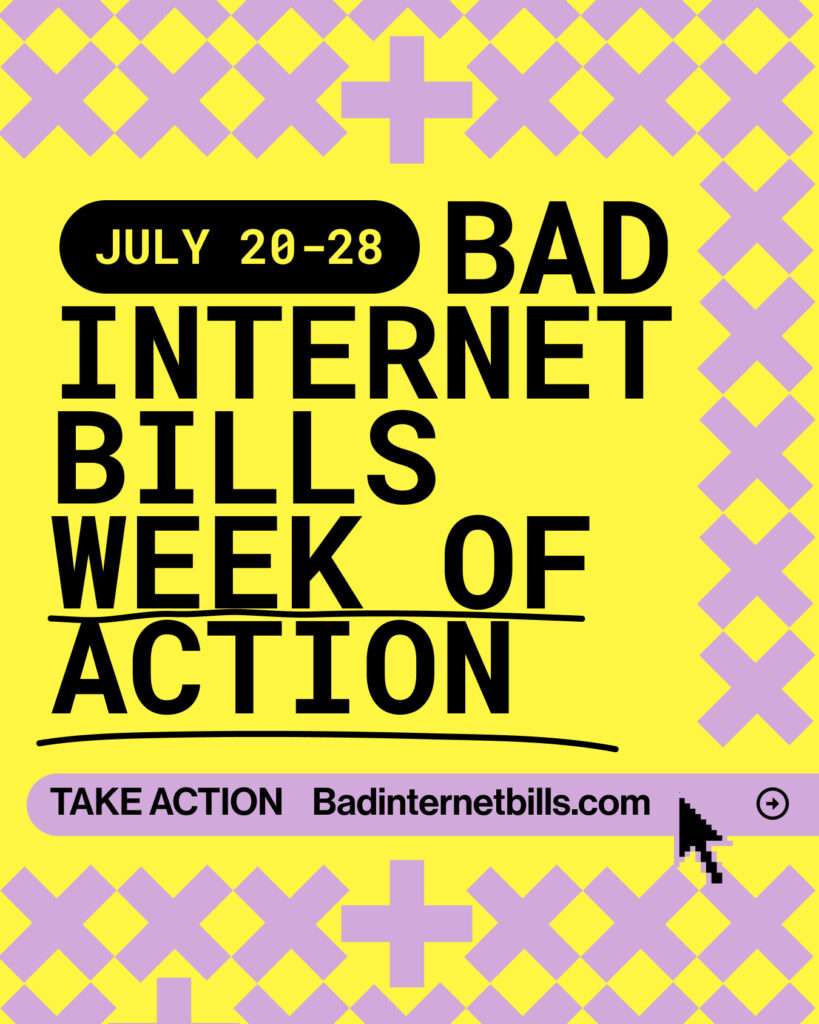Judge Blocks Biden Administration's Strict Asylum Restrictions
Plus: Digital rights groups protest "bad internet bills," the FTC might be readying another lawsuit against Amazon, and more...

Judge blocks President Joe Biden's "Trump-lite" asylum policy. A federal court has blocked the Biden administration's latest attempt to limit migrants from seeking asylum in the U.S. "The Rule—which has been in effect for two months—cannot remain in place," wrote U.S. District Judge Jon Tigar in a ruling released Tuesday.
Tigar gave the administration two weeks to appeal before his order takes effect.
"The Justice Department immediately appealed [Tigar's] order and asked for it to be put on hold while the case is heard. The agency said it's confident the rule is lawful," reports the Associated Press.
The rule in question—which took effect upon the expiring of Title 42 migrant expulsions in May—requires the U.S. to immediately expel many asylum-seeking migrants. George Mason University law professor Ilya Somin called it a "Trump-lite asylum policy."
Here's how Tigar explained it:
Under the Rule, noncitizens other than Mexican nationals who cross the southern border are presumed ineligible for asylum unless they (1) have received advance permission to travel to the U.S. to apply for parole; (2) present at a port of entry for a pre-scheduled appointment (or without an appointment, if they can demonstrate an "ongoing and serious obstacle" that precluded pre-scheduling); or (3) have already sought and been denied asylum or other protection in another country en route to the U.S.
The American Civil Liberties Union (ACLU), the National Immigrant Justice Center, and other organizations challenged the rule, arguing that "it forces migrants to seek protection in countries that don't have the same robust asylum system and human rights protections as the United States," notes the A.P.:
They also argued that the CBP One app the government wants migrants to use doesn't have enough appointments and isn't available in enough languages.
The administration had argued that protection systems in other countries that migrants travel through have improved. But Tigar said it's not feasible for some migrants to seek protection in a transit country and noted the violence that many face in Mexico in particular.
"While they wait for an adjudication, applicants for asylum must remain in Mexico, where migrants are generally at heightened risk of violence by both state and non-state actors," the judge, an appointee of President Barack Obama, wrote.
He also wrote that the rule is illegal because it presumes that people are ineligible for asylum if they enter the country between legal border crossings. But, Tigar wrote, Congress expressly said that should not affect whether someone is eligible for asylum.
Under the Refugee Act of 1980, "any noncitizen who arrives in the United States, 'whether or not at a designated port of arrival' and 'irrespective of [their] status, may apply for asylum,'" noted Tigar.
"The court's ruling is welcome and expected, since the new policy simply rehashed prior rules that restricted access to asylum based on similar grounds, which courts already rejected," Keren Zwick, director of litigation at the National Immigrant Justice Center and co-counsel on the case, said in a statement. "U.S. laws protect the rights of people fleeing persecution to come to this country and pursue asylum, full stop."
The ACLU's Katrina Eiland, who argued the case, called the ruling "a victory," while noting that "each day the Biden administration prolongs the fight over its illegal ban, many people fleeing persecution and seeking safe harbor for their families are instead left in grave danger."
FREE MINDS
"We've made it clear that these bills are terrible ideas, but Congress is now considering packaging them together—possibly into must-pass legislation," notes Jason Kelley of EFF.
Except KOSA will lead to MORE harm online, not less. This bill should be permanently shelved so that Congress can focus on actual solutions to Big Tech's harms, like passing data privacy and antitrust legislation, algorithmic transparency, studying the failure of SESTA/FOSTA, etc https://t.co/vq0MwiA2iU
— Evan Greer is on Mastodon and Bluesky (@evan_greer) July 20, 2023
Bills like the EARN IT Act and the STOP CSAM Act "may sound well-intentioned, as they claim to protect children from sexual exploitation, but their impact on free expression and online privacy would be devastating," says the ACLU. "These bills would create a clear avenue to remove important, protected speech from the internet, and our ability to communicate without the government seeing."
Some lawmakers are angling to attach the STOP CSAM Act—which Riana Pfefferkorn of the Stanford Internet Observatory has called "an anti-encryption stalking horse"—into the National Defense Authorization Act (NDAA). EFF has more on that here.
FREE MARKETS
FTC readying another lawsuit against Amazon? The Federal Trade Commission (FTC) is reportedly readying another antitrust lawsuit against Amazon, just months after accusing the company of duping people into signing up for Amazon Prime. "The FTC has been investigating the company on a number of fronts, and the coming case would be one of the most aggressive and high-profile moves in the Biden administration's rocky effort to tame the power of tech giants," according to Politico:
The wide-ranging lawsuit is expected as soon as August, and will likely challenge a host of Amazon's business practices, said the people, who were granted anonymity to discuss a confidential matter. If successful, it could lead to a court-ordered restructuring of the $1.3 trillion empire and define the legacy of FTC Chair Lina Khan. …
The exact details of the final lawsuit are not known, and changes to the final complaint are expected until the eleventh hour. But personnel throughout the agency, including Khan herself, have homed in on several of Amazon's business practices, said some of the people.
QUICK HITS
Bad New Jersey: "[The law] would require New Jersey to adopt its own "convenience of the employer" rule, so the state could tax people that work for companies based in New Jersey if they work from home in another state because it's easier for them." https://t.co/UY22JIIleQ pic.twitter.com/uRY38BsJaw
— Scott Lincicome (@scottlincicome) July 22, 2023
• Lab-grown meat is hitting high-end restaurants.
• Rep. Bobby Scott (D–Va.) and Sen. Bernie Sanders (I–Vt.) are introducing legislation to raise the national minimum wage to $17 per hour by 2028.
• "Liberalism's core principle of individual autonomy is not a recipe for social decay," writes Emily Chamlee-Wright at The Unpopulist. "It is an essential ingredient in what makes liberal societies humane sites of meaning-rich social connection in which capable but fallible human beings cooperate, adapt, and learn."
• The Ron DeSantis campaign has fired more than three dozen staffers, including some thought to be responsible for the campaign's "too online" aspects.
• Conservative commentators may be reading way too much into Barbie.



Show Comments (383)